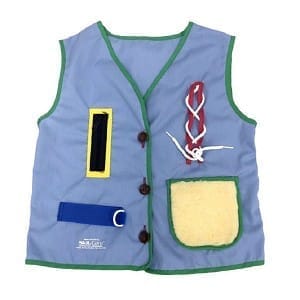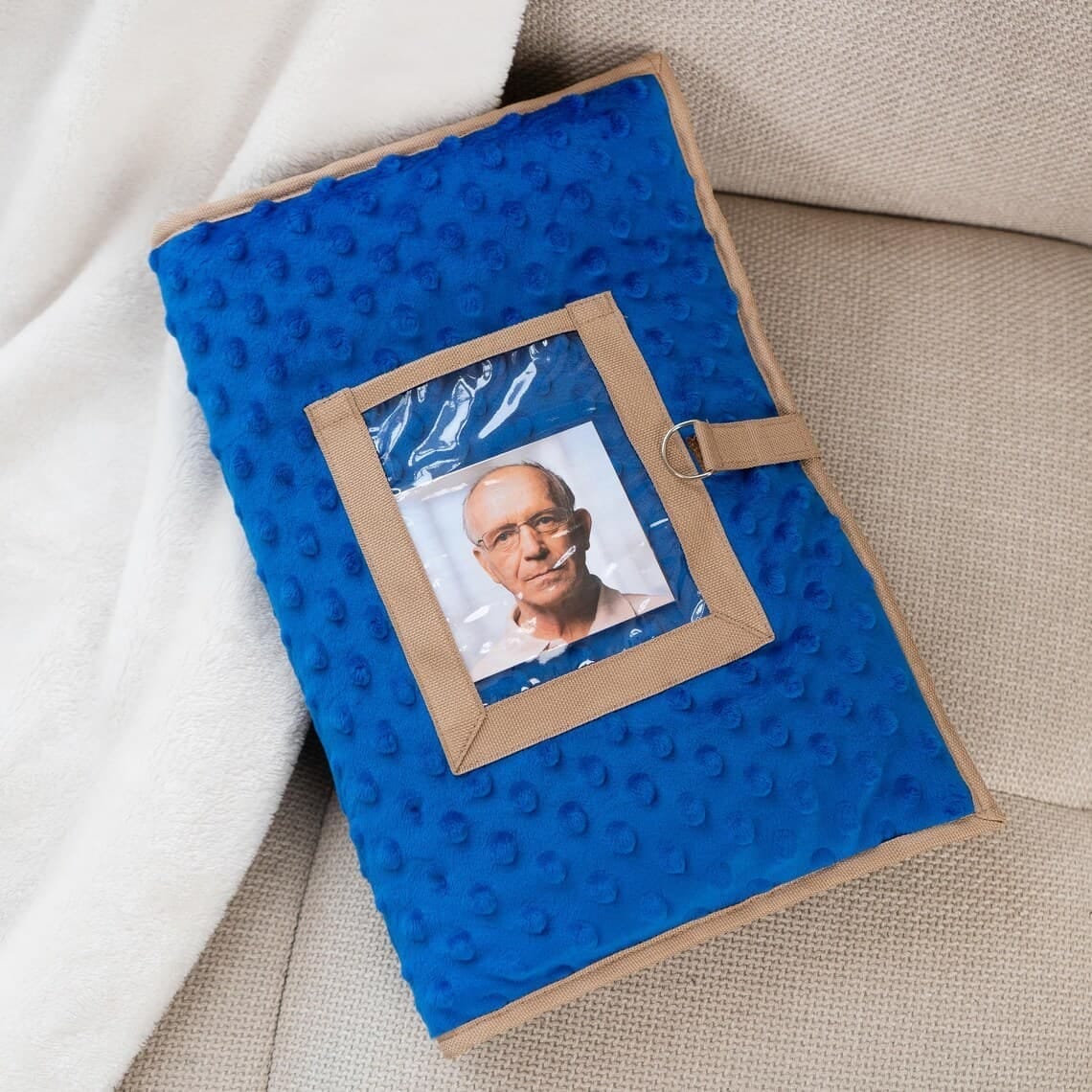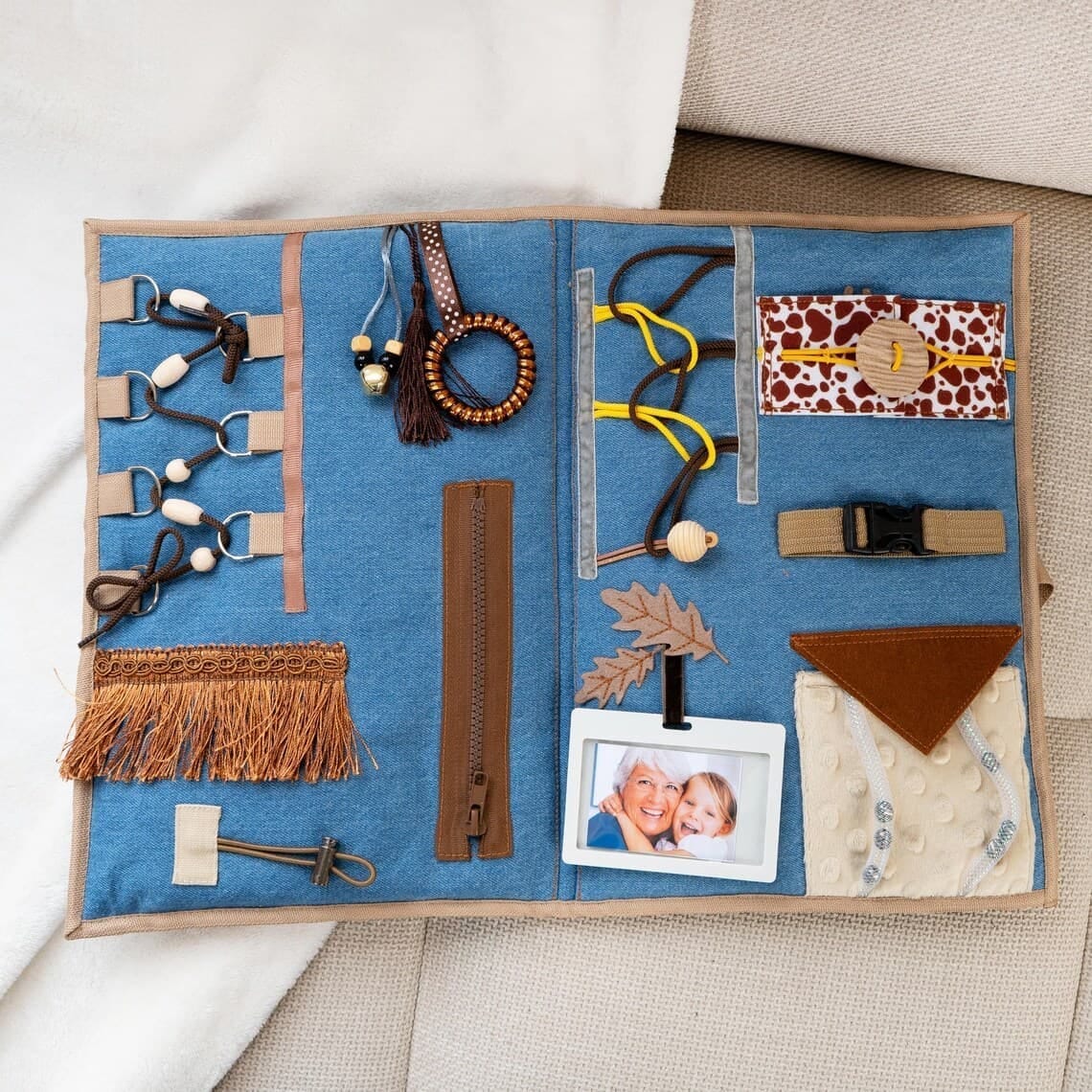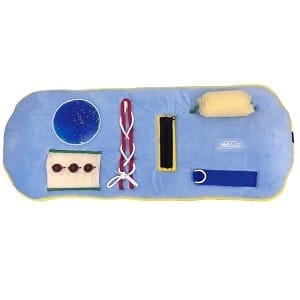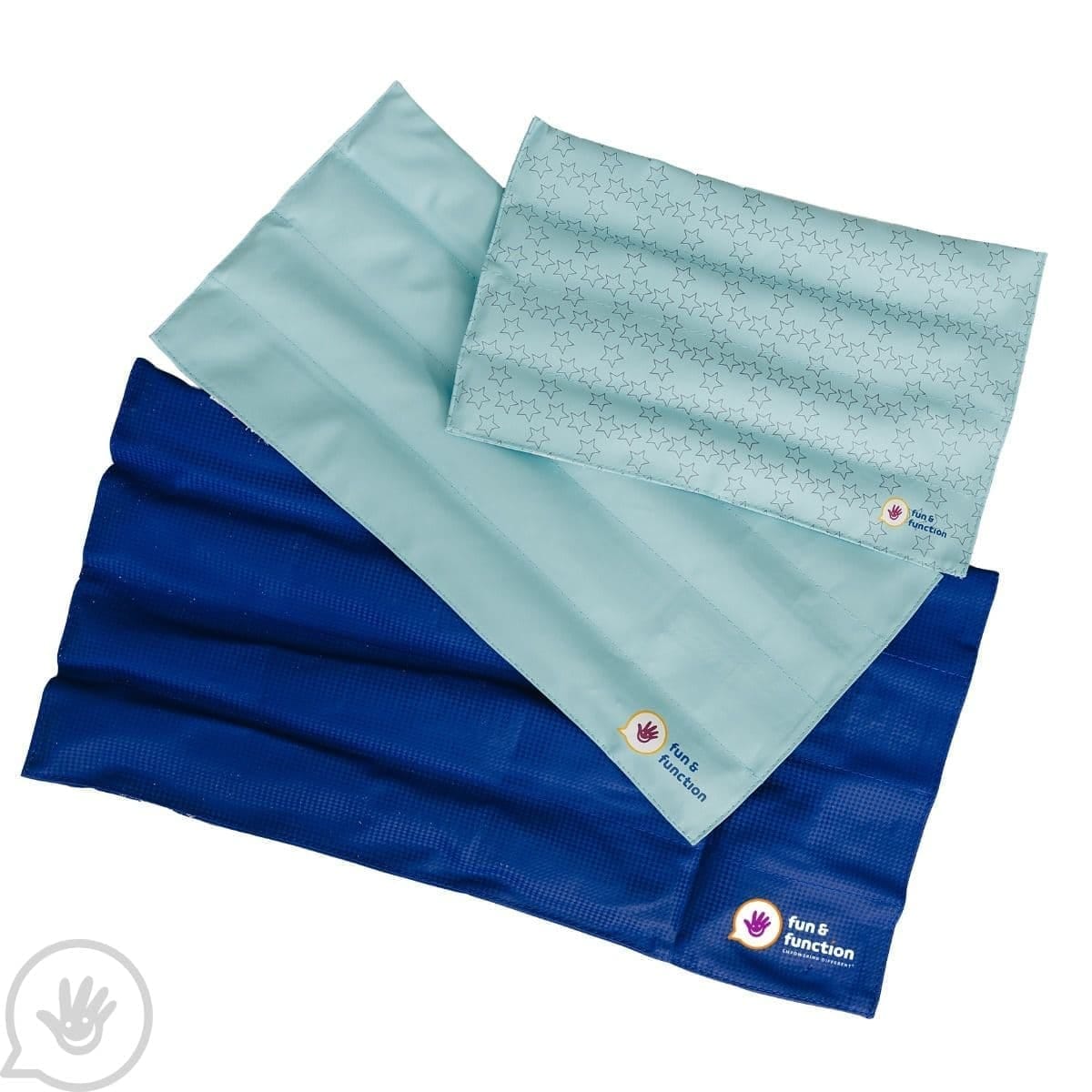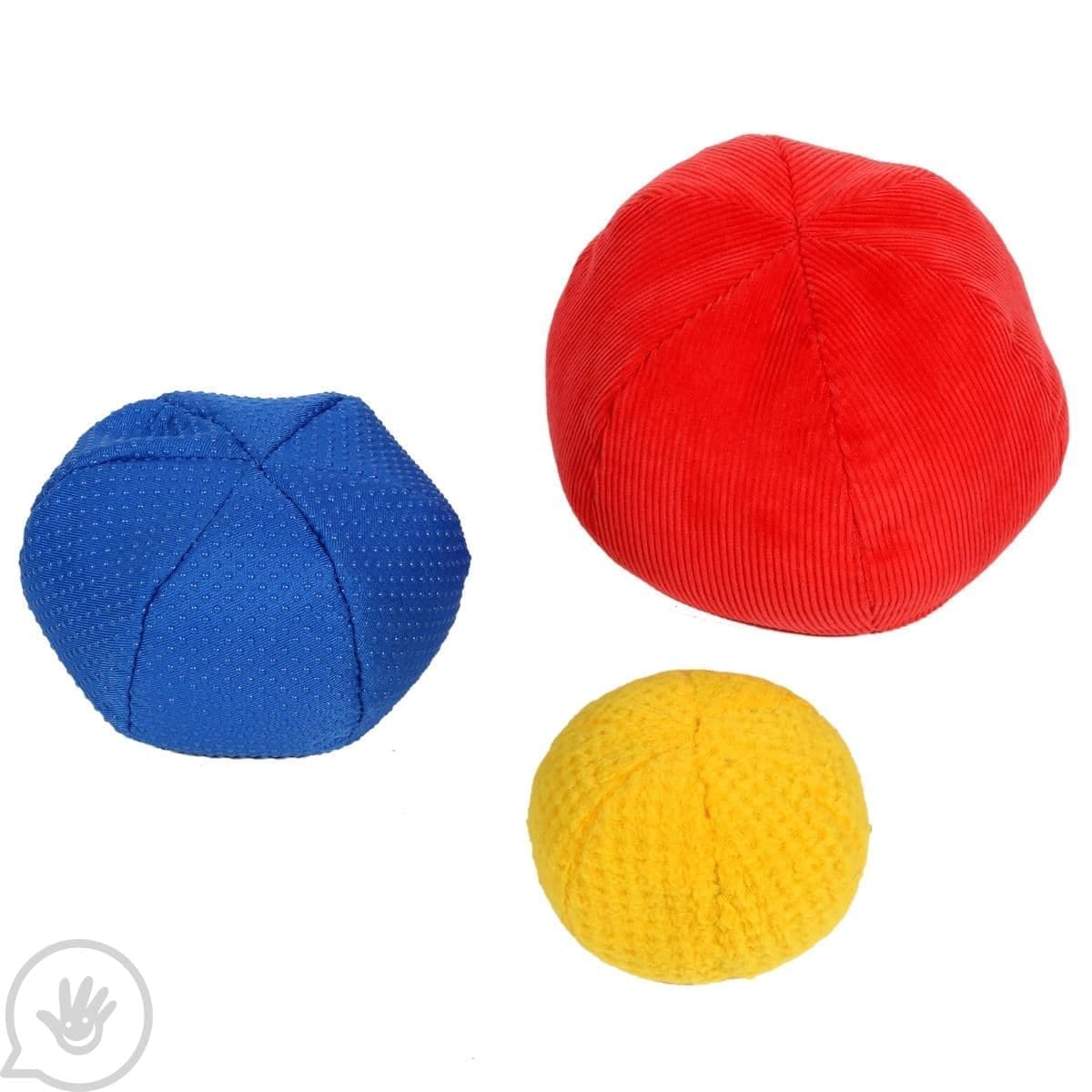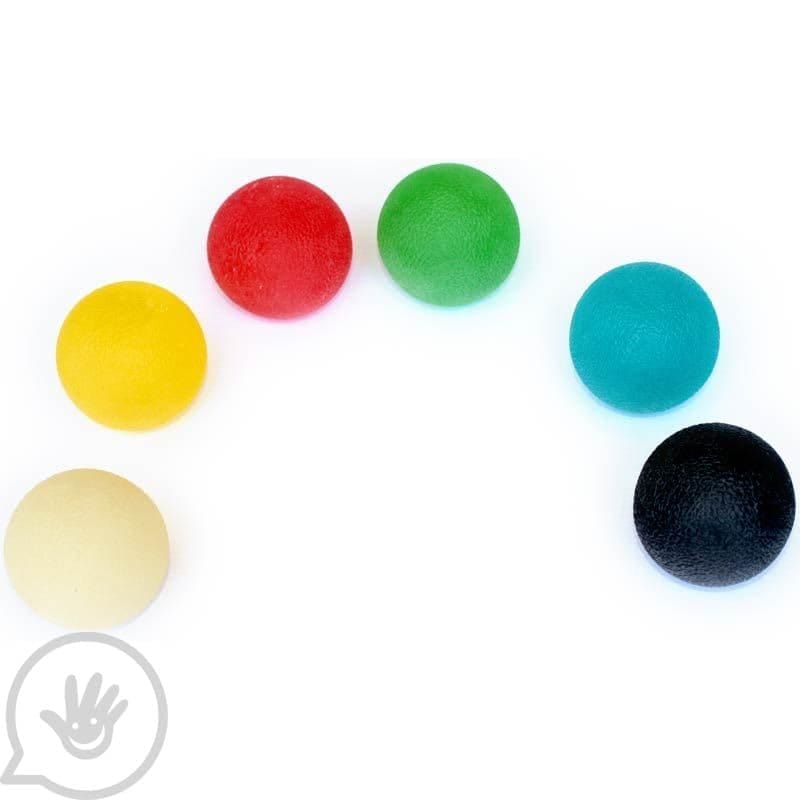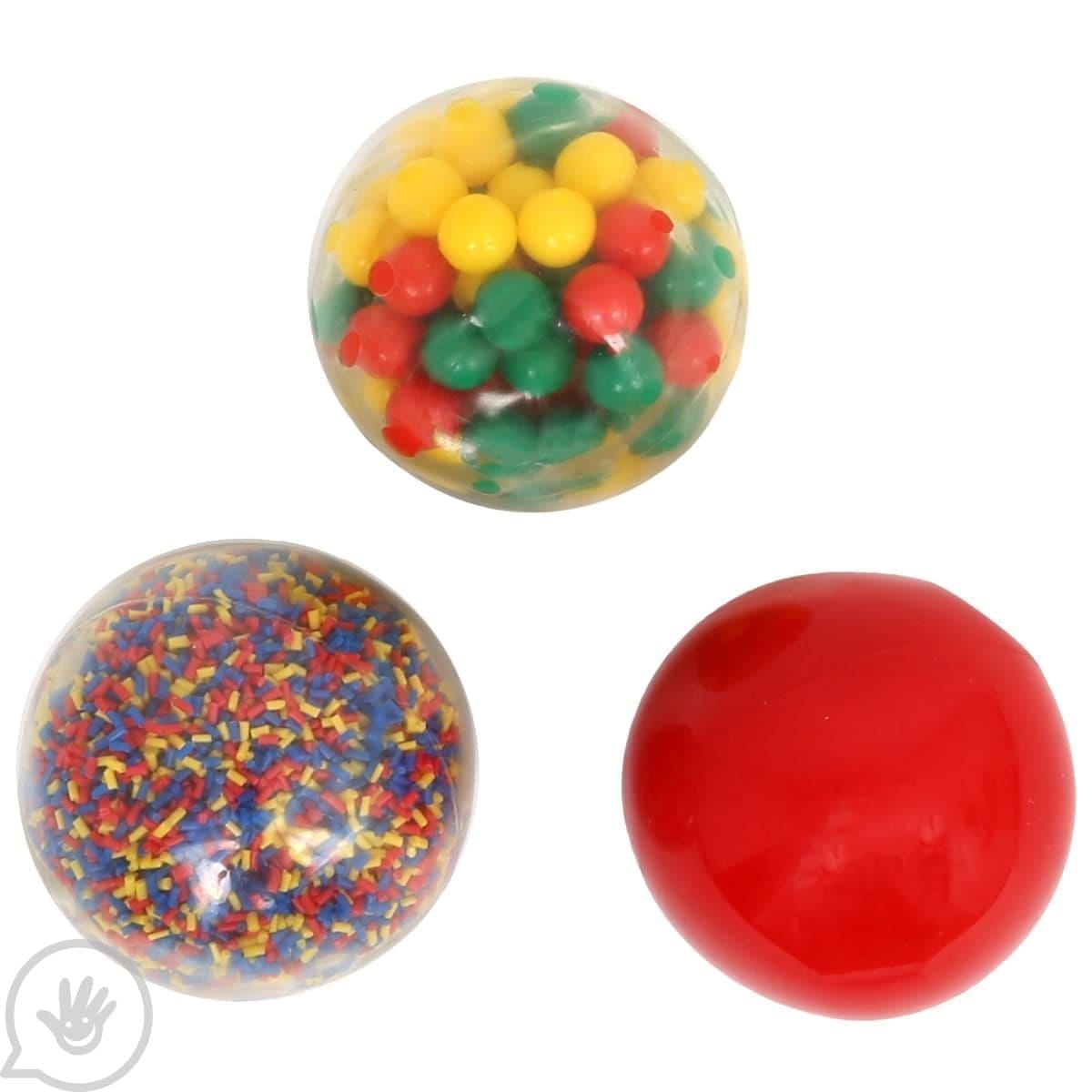Fidget Toys for Dementia Care
Best Fidget Blankets, Balls & Therapy Tools
Fidget Toys for Dementia Care
Best Fidget Blankets, Balls & Therapy Tools
What are fidget toys for dementia patients?
Fidget toys for dementia patients are small, easy-to-use tools that keep the hands busy and the mind calm. They often include soft textures, buttons, zippers, or rolling parts that feel nice to touch and help reduce stress.
These toys can help older adults who feel nervous, bored, or confused because of Alzheimer’s or dementia. Fidgeting with a toy can bring comfort, help with focus, and give a sense of calm during daily routines.
Simple hand movements—like squeezing or sliding—can help people feel safe and stay more connected to the world around them.
Benefits of Fidget Toys for Adults with Dementia
Calm anxiety, nervous energy, and wandering
Help focus the mind with simple hand movement
Give the hands something to do during quiet times
Bring back memories through touch and feel
Offer a safe and drug-free way to relax
Who Can Use Fidget Toys?
Adults in the early to middle stages of dementia
Seniors who feel restless, anxious, or bored
Caregivers looking for easy ways to comfort and engage
People in nursing homes or memory care settings
Best Fidget Toys for Adults

"Unlike most lists filled with Amazon-only products, this selection features handpicked items from specialized platforms trusted by caregivers, therapists, and dementia care professionals."
Activity Vest for Dementia by Skil-Care: Hands-on comfort to reduce anxiety and improve focus
This fidget vest for adults with dementia is a wearable activity tool designed to keep hands busy and minds engaged. Ideal for seniors who experience restlessness or agitation, the vest includes textured fabrics, zippers, buttons, and pull-tabs that encourage movement and reduce stress. It’s one of the most effective activities for seniors in both home and care settings.
Used while seated or walking, this dementia activity vest helps support daily living for dementia patients by promoting focus and reducing frustration. Its calming effect makes it a valuable tool during transitions, medical appointments, or daily routines.
Fidget Book for Adults with Dementia: Hands-on comfort and daily engagement
This fidget book is a calming and creative activity designed for older adults with Alzheimer’s and dementia. Made with soft, textured fabrics and simple fasteners, it offers safe, familiar tasks like buttoning, zipping, and touching different materials—making it one of the most thoughtful dementia toys for men or seniors who enjoy hands-on routines.
Unlike a typical fidget blanket, this portable book folds easily and works well on laps or bedside tables. It supports home activities for dementia patients and provides structure, which is especially helpful during transitions, downtime, or moments of restlessness.
This type of activity for the elderly in care homes promotes fine motor skills, stimulates memory through touch, and gives a sense of purpose—all without screens or complex instructions. It’s also a wonderful Father’s Day gift for grandfathers in memory care.
Fidget Blanket for Dementia: Skil-Care Activity Tray Overlay for Sensory Engagement and Calm
The Activity Tray Overlay by Skil-Care works like a fidget blanket for dementia, but is specially designed to sit over a wheelchair tray or tabletop. It features multiple tactile elements—including zippers, beads, laces, and loops—that encourage fine motor movement and visual focus. This makes it ideal for therapeutic activities for dementia patients who benefit from structured sensory play.
Unlike loose fidget quilts or lap blankets, this overlay stays in place and offers a defined activity space. It can be used during seated periods, mealtimes, or therapy sessions to reduce agitation and promote calm. A practical option for calming activities for dementia patients, whether at home or in long-term care settings.
Weighted Lap Blanket for Adults: Wipe-Clean Comfort for Calming Sensory Support
This weighted lap blanket for adults is designed to offer calming sensory input during daily routines or transitions. With a soft vinyl exterior that’s easy to wipe clean, this pad is ideal for home, school, or care facility use. It provides deep pressure stimulation, helping individuals feel grounded, focused, and relaxed.
More compact than full-size weighted blankets, this lap pad is a practical solution for adults with dementia, autism, or sensory sensitivities who may become agitated or restless. The smooth surface makes it suitable for frequent use—just wipe it down and it's ready again.
Whether used in a chair, wheelchair, or during table activities, this weighted lap pad for adults supports emotional regulation, attention, and overall comfort.
Sensory Balls for Adults: Weighted Textured Balls for Calming Sensory Play
This set of weighted textured balls is designed as a sensory-rich tool for adults who need calming input through the hands. Each ball has a unique texture and gentle weight, offering a simple way to engage touch, strengthen grip, and promote calm.
Ideal for adults with dementia, these fidget toys are effective during therapy, relaxation, or quiet time. The weight and texture stimulate both tactile and proprioceptive senses—helping users feel more grounded and focused.
Whether used in memory care settings, at home, or in day programs, these fidget balls for adults are a non-pharmacological way to reduce agitation, promote hand movement, and support emotional regulation.
Gel Hand Exercise Balls – Set of 6: Therapy Balls to Strengthen, Calm, and Engage
This gel hand exercise ball set is designed to provide a safe and engaging way to support hand mobility and focus. With six different levels of resistance, it offers a versatile therapy tool for adults with dementia, helping to maintain fine motor skills and reduce anxiety. These therapy balls can be squeezed, rolled, or gently manipulated, making them one of the most adaptable hand exercise balls therapy tools for use at home, in senior care facilities, or memory care settings.
Ideal for both calming and strengthening, these hand therapy balls are soft, durable, and easy to clean, supporting daily routines and encouraging active participation. This makes them especially helpful for caregivers looking for activities for the elderly that promote tactile stimulation and reduce restlessness.
Their simple design allows for immediate use without complicated instructions, making them one of the most accessible hand therapy balls available.
Fidget Ball – Set of 3: Stress Balls for Adults in Dementia Care
This set of 3 fidget balls is perfect for stress relief and hand therapy for adults. Designed with different textures and resistance levels, these balls provide sensory input that can help adults with dementia stay calm and focused.
They are easy to squeeze, making them ideal stress balls for adults who need to channel nervous energy or manage agitation. These balls are also an excellent addition to activities for nursing home residents, offering a non-pharmacological way to promote engagement and reduce restlessness.
Whether at home, in a care setting, or as part of a therapy routine, these fidget toys are a simple yet effective tool to support memory care and cognitive health.
Buying Guide: How to Choose Fidget Toys for Dementia Patients
Stage of Dementia
Choose toys that match the person’s cognitive and physical abilities. For early or mid-stage dementia, look for interactive fidget items that encourage fine motor movement and focus. For late-stage dementia, opt for simpler, soothing textures or repetitive actions that don’t require decision-making.Type of Stimulation
Fidget toys come in various forms—some provide tactile stimulation, while others add visual or even gentle auditory elements. Consider what helps reduce stress or capture attention without overwhelming the person.Safety and Durability
Always prioritize non-toxic, soft-edged, and washable materials. Durable stitching and secure parts are especially important for busy hands.Ease of Use
Avoid toys that require steps, rules, or batteries unless they are very simple. The best fidget toys are intuitive and calming from the start.Feedback from Caregivers
Look for products with high ratings and read reviews from other caregivers. Items labeled as the best fidget toys for adults with dementia often have clear success stories from real-world use.
Tips for Caregivers & Families:
Choose fidget toys that match your loved one’s motor skills and personal preferences.
Introduce them during restlessness, anxiety, or as part of daily dementia care routines.
Combine fidget time with calming activities like soft music, familiar scents, or quiet environments.
Rotate between different fidget blankets, aprons, or squeeze balls to keep things engaging.
Always monitor for frustration or overstimulation—less is more when it comes to comfort.
Incorporating suitable fidget toys for dementia patients can provide calmness, comfort, and connection in their daily lives—whether at home or in a care environment.
FAQ
A fidget toy is a small, handheld item designed to provide sensory stimulation through movement, touch, or manipulation. They can help reduce restlessness, anxiety, and promote focus—especially in individuals with dementia or cognitive decline.
Yes. Fidget toys for dementia patients offer calming tactile input that can reduce agitation, provide a sense of purpose, and encourage fine motor activity—especially helpful in mid to late stages.
A fidget book is a soft fabric book that includes interactive elements on each page—like zippers, snaps, or textures. It combines cognitive stimulation and tactile activity in a portable format.
A fidget blanket (also called a busy blanket or sensory blanket) contains various textures, zippers, buttons, and objects sewn onto fabric. It provides stimulation and comfort while encouraging hand movement and focus.
A weighted lap blanket provides gentle pressure that can help people with dementia or sensory processing issues feel calmer and more grounded. It can also support focus during activities or help reduce anxiety during daily routines.
The best weight for a weighted lap blanket typically ranges between 2 to 5 pounds. The choice depends on the user’s size, comfort, and sensory needs. Always choose a weight that feels soothing without being too heavy.
Yes, hand exercise balls can improve grip strength, finger flexibility, and hand coordination. They are especially helpful for seniors and people in therapy, as they help maintain hand function and reduce stiffness.
Yes, stress balls or fidget balls can be helpful for dementia patients. They provide tactile stimulation, help reduce restlessness, and can be used during activities for nursing home residents or at home to promote relaxation and engagement.
Yes. Squeeze balls for hand therapy promote grip strength, relieve tension, and improve circulation. They're excellent tools for elderly individuals managing anxiety or reduced hand function.
Comfort comes from consistency, familiar routines, and gentle sensory input. Items like fidget quilts, soft toys, aromatherapy, soothing music, and reassuring human presence can provide peace and reduce distress.
They are ideal for individuals with dementia, Alzheimer’s, or anxiety who often engage in repetitive hand movements. Twiddle muffs help soothe and reduce agitation through tactile stimulation.
Choose based on their cognitive and physical abilities. For example, soft textures for late stages, or interactive zippers and snaps for early to mid stages. Always prioritize safety, simplicity, and positive feedback from others.

Affiliate Disclosure:
This website contains affiliate links. If you click on these links and make a purchase, we may earn a small commission at no additional cost to you. These commissions help us keep this site running and allow us to continue creating helpful content to support caregivers and families.
